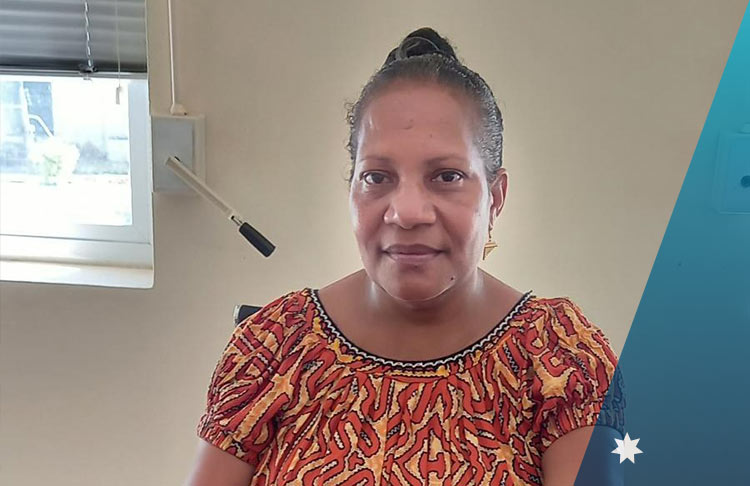
International Girls in ICT Day in 2023 has the theme ‘Digital Skills for Life’. The ICT Day is an annual event that aims to inspire and encourage girls to pursue a future in ICT and to ensure they have the necessary skills, confidence and support to achieve their goals. We speak with Louise Nasak, an Australia Awards graduate with a Master of Business Information Systems from the Australian National University (ANU). Louise is currently the Team Leader for the Vanuatu Community Based Climate Resilience Project (VCCRP) at the Ministry of Climate Change (MoCC) funded by the Green Climate Fund (GFC), Vanuatu Government, DFAT and Save the Children.
Prior to undertaking a Master degree, Louise worked as an IT Manager at the Reserve Bank of Vanuatu (RBV) where she was the only female within her team. There was much transition happening within the IT sector during this time, with major overhauls of the network and few advisors able to oversee the process. Louise saw a Master degree as an opportunity to leverage the gap between the pace at which technology was moving and those with the relevant knowledge; ‘it threw me into the deep end but it made me swim‘ Louise explains.
As Team Leader of VCCRP at MoCC, Louise is responsible for oversight of the entire six-year project amounting to over 3.6 billion vatu. This includes 51 project staff throughout the six provinces, 29 area councils, and over 90,157 people as direct beneficiaries. Louise’s role within GFC is multifaceted that involves coordinating the financial management, assisting with planning to ensure it aligns with the project’s objectives, relationship building, and reporting to donors and other stakeholders as a means of guaranteeing there is accountability. The project itself is to support locally led community based sustainable actions in the face of climate change particularly in the areas of communities identifying and implementing nature-based solutions such as mangrove replanting, resilient agriculture, resilient fishing and economic empowerment for women in terms of food security and to sustain their livelihoods.
‘At ANU, project management and systems development were a large component of my studies that is applicable to my current role. I have been able to transfer those skills whilst also introducing technology as a way of being more efficient‘ Louise states. By automating work such as utilising software systems such as Outlook beyond just a way to send and receive emails, and facilitating customised trainings for staff, Louise is able to lead by example and believes technology should be used safely and responsibly in a world of digital citizens.
When asked how we can encourage more young women to enter ICT, Louise believes the approach needs to be two-fold. The first step in encouraging women to enter ICT is to progress ICT within the curriculum during those early years of schooling. Louise explains that ‘encouraging incubators of programming at a very early age is one way we could help to overcome getting girls to understand that ICT is very relevant for them, especially considering the digital age we now live in‘. The second step in encouraging women to enter ICT is raising awareness around our digital footprint as a way to educate and motivate girls to advocate for cyber safety. Louise further explains ‘girls could become forensic accountants, serve in the police force to perform electronic evidence analysis, or become scientists and use ICT to predict, communicate and help people with climate change and natural disasters information in Vanuatu‘.
Louise is a strong proponent for ICT and inclusivity, imparting her knowledge as a way to strengthen the understanding of what role technology plays in all of our lives.

